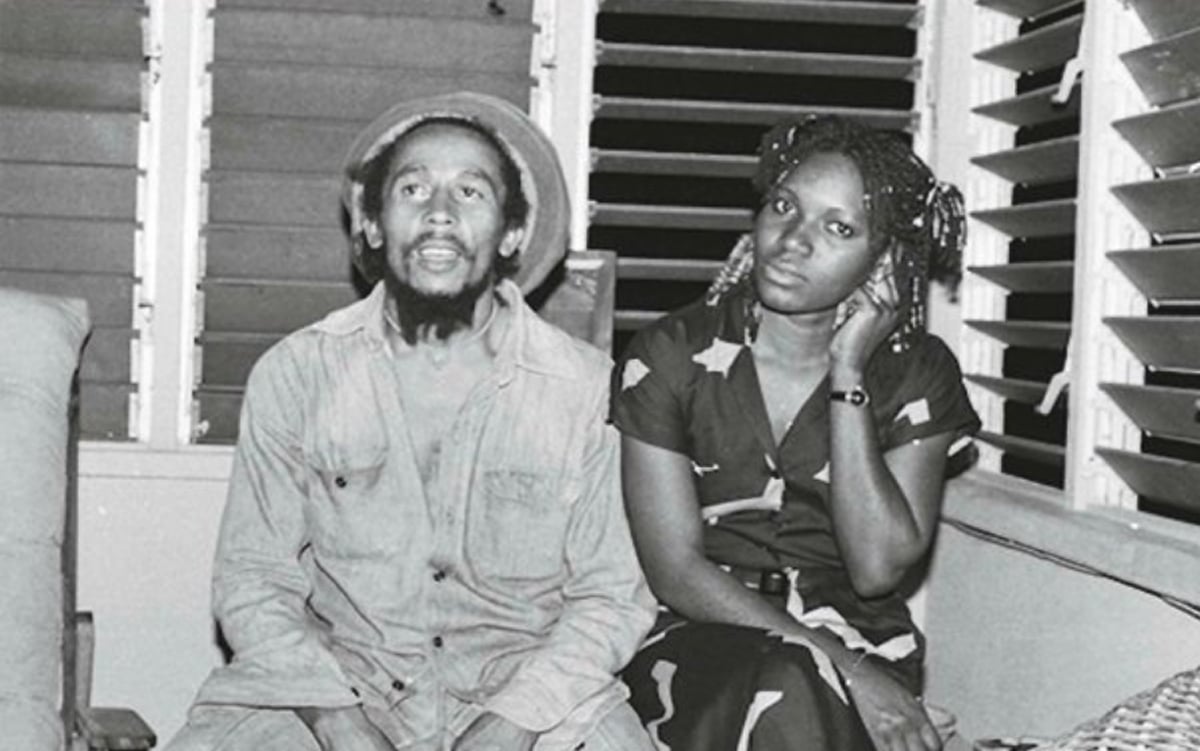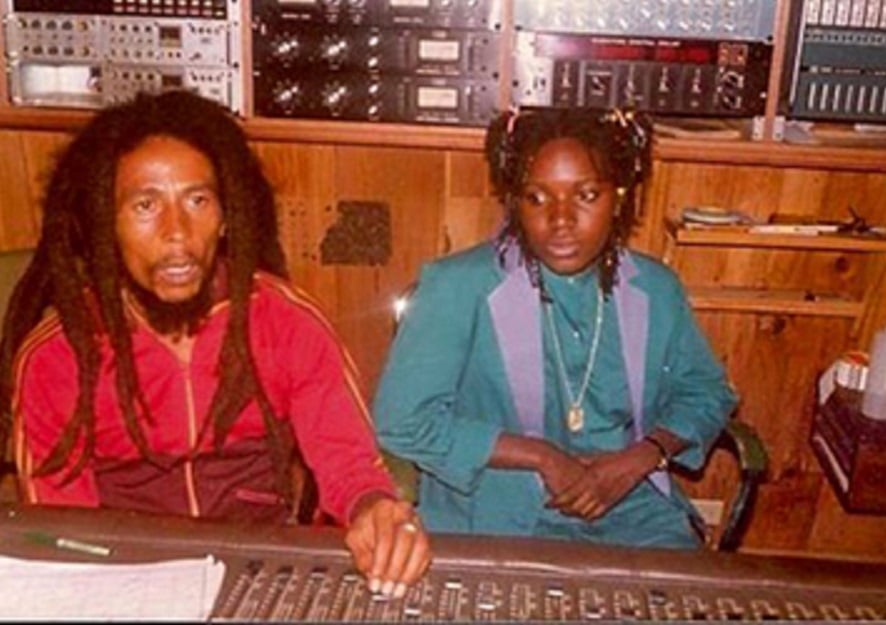The African Princess Who Changed Bob Marley’s Life

As a devout Rastafarian and Pan-African crusader, King of Reggae Bob Marley’s link to the continent was as solemn as it was sentimental. The Gong’s affinity for Africa would manifest as more than song titles or an album cover (Survival), extending to his little-known love affair with the daughter of an African dictator.
Pascaline Bongo, eldest daughter of former President of Gabon Omar Bongo would only date Marley for a few months before his passing, but in that time she greatly helped the third world megastar “strengthen his African roots”.
The West African heiress detailed their relationship in the 2012 documentary Marley, and in the just-released tell-all, Bob Marley and the Dictator’s Daughter by French journalist Anne-Sophie Jahn. The memoir surrounds their short-lived romance, from their first meeting where he flatly called her “ugly” due to her processed hair, to the first time he played in Africa for the Gabonese leader himself, a key moment in his career.
Marley’s lyrical legacy focused on reaching scattered African peoples, so much so that his slow breakthrough in the African American market troubled him deeply. “Bob’s whole life is about Africa, it is not about Jamaica,” Bob’s widow, Rita Marley, told The Guardian in 2005. A strong proponent of Garvey’s repatriation campaign, the Exodus singer believed those “stolen from Africa” were due to return, and thanks to Bongo he received a royal welcome in Liberville in early 1980.
During their visit, however, the Wailers were shocked to learn that the oil-rich nation was an autocracy, far from the utopian ideals they’d been calling for or anticipating. I Three’s backing vocalist Judy Mowatt said of Gabon’s population “they weren’t colonised but they weren’t free. Gabon was a neocolonial country ruled by a black man.”
In all their reverence for Africa, the group neglected to research the Sub-Saharan state rife with poverty and inequality. Wailers guitarist Junior Marvin, added to Mowatt’s observations saying, “We didn’t know that Omar Bongo was a dictator. We were innocent, so happy to be invited to Africa.”

But Bongo explained that the Gong believed her father’s key alliance with Emperor Haile Selassie was enough to exonerate him in a sense. “When we met,” Bongo said, “he told me that my father had been the only one to suggest that Haile Selassie move to Gabon after he was dethroned. And that the Rastafarians felt that this was a strong act that deserved their respect and admiration.”
The show went on, as did the budding romance between Bongo, then a 23-year-old student and the 34-year-old recording star. Clearly a fan of his work, it was that very night after their awkward first exchange at the Wailer’s LA concert that she suggested he make an appearance in her homeland. According to the 200+ page text, after the performance, their relationship flourished.
The book also states that Marley dreamt of having a child with his “African princess”, who ditched her processed hairdo and started sporting braids when things got serious. “It wasn’t hidden, but it wasn’t public either,” guitarist Junior Marvin said of their union, and Bongo was regularly jetting between Liberville, L.A. and Kingston to be with her “first great love” as The Africa Report puts it.
Over the few short months, she grappled with the limits that both their backgrounds placed on their love. “Bob used to say to me: ‘Your father will never let you marry me’, and I said to myself: ‘No chance with all the women in his life… He was a Rasta and his philosophy was to share everything. And it wasn’t his fault that the girls jumped on him. They all knew he was married… but he was a superstar.’”
The lovers remained in each other’s lives up to the sad ending, and even beyond. She visited him every weekend during the last six months of his life at the German facility where he sought treatment for his terminal cancer. She was also present at his funeral in 1981, and stayed close to his mother Cedella Booker (whose father, Omeriah, Caribbean Beat called “the Jamaican equivalent of an African griot”) until her passing in 2008.
Though Bongo and Bob Marley would never conceive a child, they shared a mutually enriching albeit short union, one that gave him a clearer understanding of the continent after years of paying homage to the motherland and preaching Afican unity.
Bongo never lost her love for Reggae music either, and she eventually founded the Abi Reggae festival, held every year since 2015 in Abidjan, featuring the likes of U-Roy, Morgan Heritage, Third World and more since its inception. She would no doubt always keep Marley in her heart, and also named her first child Nesta, after the Is This Love singer, whose full name was Robert Nesta Marley.
